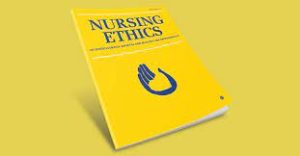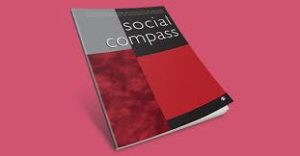Christian Worldview and Postmodern Relativism: Perspectives on Spirituality and Ethics in Healthcare


The nature of spirituality and ethics in healthcare has been a fundamental perspective, shaping the values and behaviors of practitioners and patients. The Christian and postmodern relativist perspectives offer contrasting viewpoints on these matters. This essay delves into the Christian perspective on the nature of spirituality and ethics in healthcare juxtaposed against the lens of postmodern relativism. By exploring these perspectives, we can better understand how they impact healthcare practices and patient care.
Christian Perspective on Spirituality and Ethics in Healthcare
The Christian worldview accentuates a belief in a divine Creator who permeates human beings with inherent value and worth. Within this framework, spirituality is considered an integral part of human existence, rooted in the connection between individuals and a higher power. Ethical considerations are deeply intertwined with this perspective, guided by a moral compass derived from religious teachings. In healthcare, the Christian perspective emphasizes the sanctity of human life, compassion, and the ethical responsibility to care for patients’ physical, emotional, and spiritual well-being.
Spirituality in Healthcare: Christian Viewpoint
For Christian healthcare practitioners, spirituality extends beyond the physical realm, encompassing emotional and spiritual dimensions. Patient care is seen as an opportunity to minister to the whole person, addressing their physical ailments while providing emotional support and spiritual comfort. The Christian perspective values the concept of “healing ministry,” where healthcare professionals view their work as a vocation that aligns with their faith. Prayer, spiritual counseling, and facilitating discussions about religion are often integrated into patient care, recognizing the importance of addressing patients’ spiritual and medical needs.
Ethics in Healthcare: Christian Viewpoint
Ethical healthcare decisions, from treatment to end-of-life care, are influenced by the Christian perspective’s emphasis on compassion, empathy, and the sanctity of life. The “not harm” principle aligns with the biblical teaching of loving one’s neighbor. Christian healthcare practitioners seek to honor the dignity of every patient, viewing their role as stewards of God’s creation. For instance, the ethical dilemma of withholding or withdrawing life-sustaining treatment is approached carefully, guided by the belief that human life is a gift from God and should be respected.
Postmodern Relativism’s Perspective on Spirituality and Ethics in Healthcare
Divergent to the Christian worldview, postmodern relativism posits that truth and morality are subjective and context-dependent. In this view, spirituality and ethics are not grounded in utter principles but are shaped by individual experiences, social constructs, and cultural backgrounds. This relativist perspective challenges traditional notions of spirituality and ethics, advocating for a pluralistic understanding that embraces diverse perspectives.
Spirituality in Healthcare: Relativist Viewpoint
From a postmodern relativist standpoint, spirituality is viewed as a personal and fluid concept bereft of worldwide truths. Healthcare practitioners may adopt a non-directive approach, allowing patients to define their spirituality and guide their care based on the patient’s individual beliefs. This approach seeks to respect the autonomy and diversity of patients’ worldviews. Nevertheless, it also raises questions about how to provide meaningful spiritual care when the concept of spirituality itself becomes highly subjective.
Ethics in Healthcare: Relativist Viewpoint
Recognizing diverse perspectives and cultural norms influences ethical decisions within postmodern relativism. Relativists claim that ethical standards are constructed within specific contexts, and no single view is intrinsically superior. This approach can lead to a more flexible and inclusive approach to healthcare ethics. Still, it also raises concerns about the potential for moral relativism to undermine fundamental ethical principles, particularly when confronted with conflicting cultural values.
Comparison and Impact on Healthcare
The Christian perspective and postmodern relativism present divergent healthcare approaches to spirituality and ethics. The former provides a moral framework rooted in absolute values, fostering a sense of purpose and guidance in decision-making. This perspective offers patients and practitioners a solid foundation for understanding spirituality and ethical obligations, especially in complex healthcare situations.
On the other hand, postmodern relativism challenges traditional notions of spirituality and ethics, emphasizing individual perspectives and cultural diversity. While it promotes inclusivity, it may also dilute ethical standards and spiritual care practices, potentially leading to a lack of shared values and cohesive ethical frameworks in healthcare settings.
Conclusion to Spirituality and Ethics in Healthcare
The Christian perspective and postmodern relativism represent distinct lenses through which spirituality and ethics are understood in healthcare. The former offers a rooted foundation in absolute values, emphasizing the interconnectedness of spirituality, compassion, and ethical responsibilities. Conversely, postmodern relativism challenges traditional norms, embracing subjectivity and diversity but potentially leading to moral ambiguity. Exploring these perspectives enhances our understanding of the complexities surrounding spirituality and ethics in healthcare. It underscores the importance of carefully considering their implications for patient care and healthcare practices.
References:
Alphacrucis College. (n.d.). A Comparison between Christian and Postmodern Worldviews. [online] Available at: https://crucis.ac.edu.au/comparison-between-christian-and-postmodern-worldviews/.
Free Essays. (n.d.). Christian Perspective and Postmodern Relativism: The Nature of Spirituality and Ethics – 1685 Words | Essay Example. [online] Available at: https://ivypanda.com/essays/christian-perspective-and-postmodern-relativism-the-nature-of-spirituality-and-ethics/.
Religion and Spirituality in Health Care Practice. (2018). AMA Journal of Ethics, [online] 20(7), pp.E607-674. Available at: https://journalofethics.ama-assn.org/issue/religion-and-spirituality-health-care-practice.





